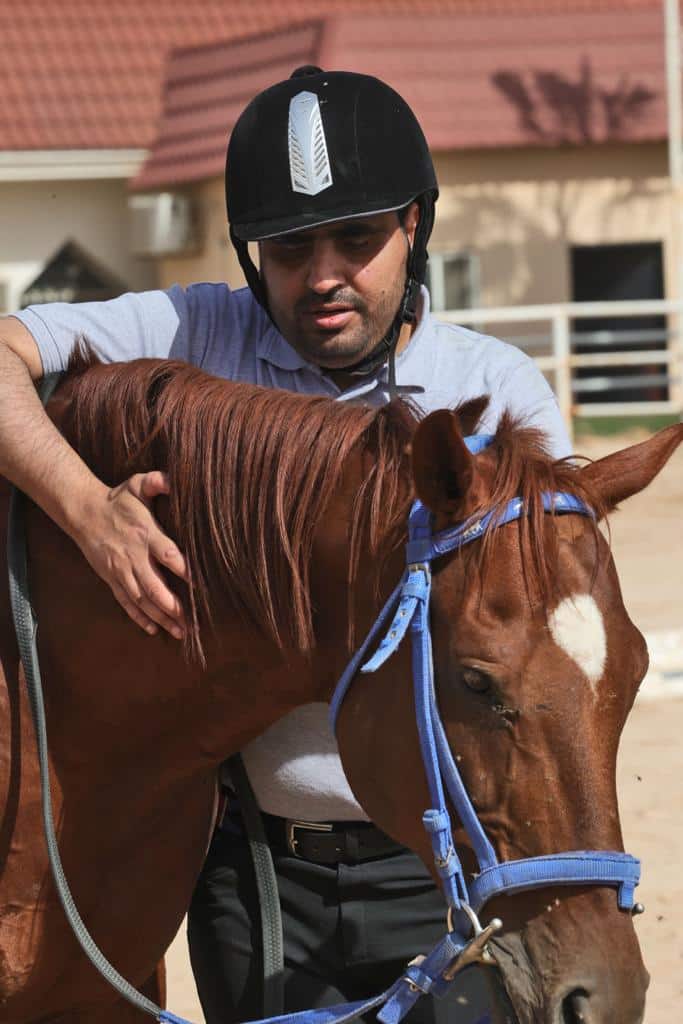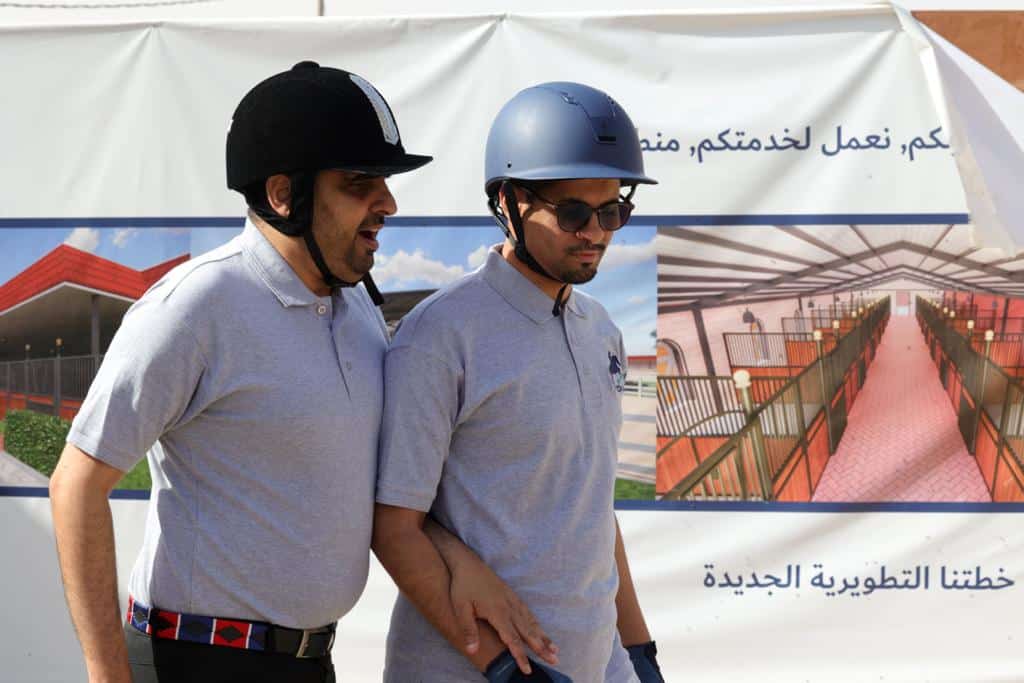Badr Al-Sharari refused to let his disability curb his passion, and despite being blind, the Saudi rider has now trailblazed his way to official recognition in horse-mad Saudi Arabia. The 35-year-old had to train at least three times a week for nearly two years before finally being admitted this month into the Saudi Arabian Equestrian Federation as its first blind member.
But the data sector worker told AFP that just as important as his journey into the official ranks was the parallel one to self-empowerment. Clutching the reins and speaking from the saddle of his horse Star, after completing an obstacle course of wooden fences, he described his life before being bitten by the horse riding bug. "I was an introvert, and didn't leave the house much," Al-Sharari said from a sandy track flanked by palm trees.
"My relationship with horses broke the barrier of introversion. If I can tame a horse, then I can do anything." Like his mother and younger brother, Al-Sharari was born blind. He travels 140 kilometres (90 miles) every day from his home in western Riyadh to the Medhal equestrian centre east of the city, where he is helped in his training by his Afghan assistant, Nasim.
Sensory skills
He is coached by Abu Mahmoud, an Egyptian, who looked on during an early-morning session as Al-Sharari flawlessly navigated a showjumping course, barely brushing against any of the fences.
"You see how he jumps without touching it? It's as if he can see," Abu Mahmoud nodded approvingly. Equestrianism is popular in Saudi Arabia, the world's leading producer of purebred Arabian horses and home to several clubs.


Official data shows that disabled people make up seven percent of the kingdom's population of 34 million, and of these some 811,000 have visual impairments. Until recently, such people were often unable to join their sighted counterparts in the joys of horse riding. However, some riding schools now offer programmes tailored specifically to blind and autistic students, as a way of helping to improve their motor and sensory skills.
Abdul Rahman Al-Otaibi joined the Medhal equestrian school three months ago. "I have come to regard horses as my brothers," said the 31-year-old, who suffers from severe visual impairment. Just like Al-Sharari, Al-Otaibi said horseback riding made him "more social" and allowed him to "integrate" with society.
Saudi Cup
"I have made more friends and developed new relationships," he said. Al-Otaibi is not completely blind, but does struggle to see the fences on the course. Initially this made him fear he might take a tumble. "I was afraid of the jumps... but with time I broke this fear," he said.
Medhal director Mashari Al-Dhiyabi said that those who suffer from visual impairments "have the ability, determination and insistence to learn, but society makes them feel as though they are incapable" of doing so. Horseback riding is a great way to "enhance mental and physical capabilities of all riders, regardless of their condition", Al-Dhiyabi said. At the end of the month, Saudi Arabia will stage this year's Saudi Cup, an annual competition held at the King Abdulaziz Racetrack in the capital.
With prize money of more than $35 million, it is touted by organisers as the world's "most valuable horse race". "My goal is to one day take part in the Saudi Cup," Al-Sharari said as he dismounted unaided from his horse. "And why not?" he asked, wiping away the sweat from his face.

